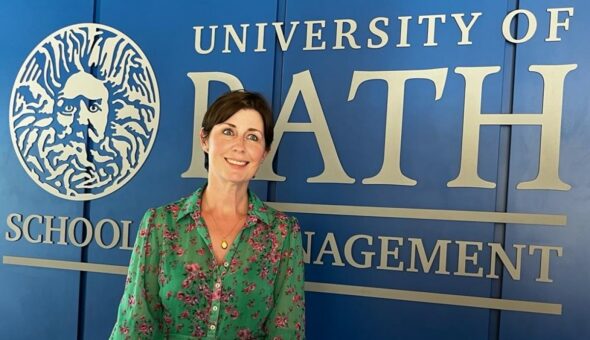Throughout March, we’ll be exploring issues that relate to women and feminism, to mark Women's History Month and International Women’s Day on the 8th. Specifically, our posts will look at research that explores bias, in one form or another, in recognition of this year's IWD theme 'Break the Bias'. Here Nancy Harding examines the world of coding, asking why there are so few women software engineers. Her results evidence the irrational, abstract assumption about the relationship between men, women and technology that permeates the sector, offering scant hope for the future of women in the profession.
Software engineers write the algorithms that are fundamental to the ‘Fourth Industrial Revolution’. Something very curious about this profession is that while women are increasing in numbers and proportions in most other professions, the number of female software engineers has until recently been dropping. Only a small proportion of applicants to join the profession are women, and those who do make it through the doors and into the laboratories and work-spaces don’t stay for long.
We wondered why. Why do women leave after overcoming so many obstacles to becoming engineers? Previous research suggested a major reason for this was because the workplace is too macho. This didn’t seem to quite explain it – over the years women have experienced huge opposition from male doctors, lawyers, academics, managers and other professional workers, but faced down that opposition and entered these other professions in very large numbers. What is there about software engineering that makes it so different? We set out to answer this question in my recent paper. My colleagues and I interviewed male and female engineers from the UK and France, asking them to describe their working days and the people they worked with.
‘Fluffy’ women and ‘geeky’ men
The results were intriguing. The men we interviewed blamed ‘geeks’ for creating a hostile atmosphere that repelled women. They all denied that they themselves were geeks, pointing instead to their male colleagues, but still they had very old-fashioned beliefs about women - talking to them was like stepping back 50 years. Women cannot write code, they said, but they are good at the ‘fluffy’ side of things, such as managing relationships with clients and handling anything to do with emotions. The women we interviewed were often angry at the way they were treated but at the same time repeated many of the things their male colleagues said about women. For example, they could start a sentence saying how much they loved coding and how good they were at it, but finish it by stating that they were not very good at coding and preferred ‘fluffy’ work.
A new theory meets long-standing stereotypes
One of the major things to emerge from this study was the sense that most software engineers held the same everyday theory about their profession, though without having examined it too closely – it just underpinned the way they thought about their job and the assumptions that stem from this. This theory understands that human beings are merging with machines. Sherry Turkle wrote about this in 1984: humans were changing from rational animals into emotional machines, she wrote. The software engineers we interviewed seemed to have their own version of this theory. The geek is the ultimate example of this: he (for it is nearly always a ‘he’) spends so much of his time linked to a computer, talking only via a keyboard, that he has almost become a computer made of flesh. Women, they believe, cannot do this – they are too soft and fluffy, and because (they think) they can’t write good algorithms they can’t communicate with machines. Real women therefore cannot write code. This isn’t a bad thing (they said) because women are very good at being human and the profession needs humans who can speak human language. The ideal engineer (our interviewees seemed to identify themselves as examples of ideal engineers) is a merger of both, that is, it is someone who can merge with the computer (who is, by definition, male) but who can also de-merge from it and become fully human.
The worrying implications of these findings
This theory is so abstract and intangible that it feels like fog: we can be surrounded by it, blinded by it, unable to move because of it, but we cannot touch it or feel it, cannot debate or reason with it. We know it’s there, know that it stops us doing things, but because it surrounds us, and is part of the very air we breathe, there is nothing we can do except conform with it.
Female engineers experience being made to feel second-rate, but understanding how and why this happens is impossible because there is nothing tangible to put a finger on and say ‘this is the reason’.
Respond



